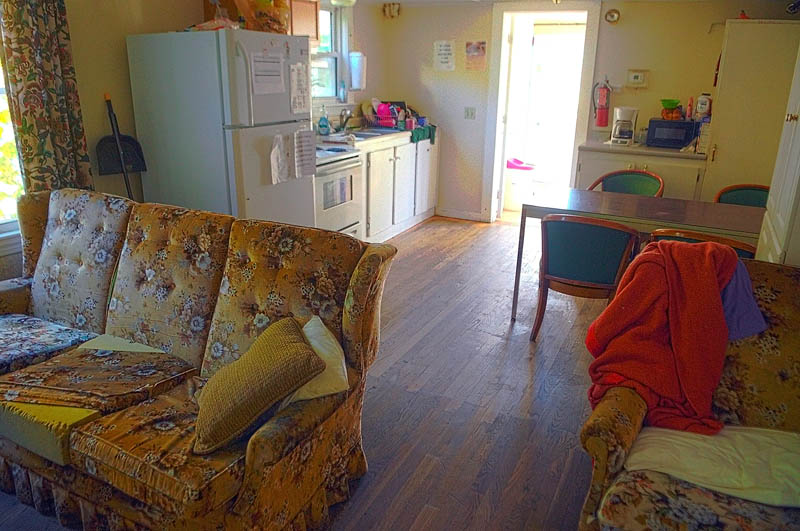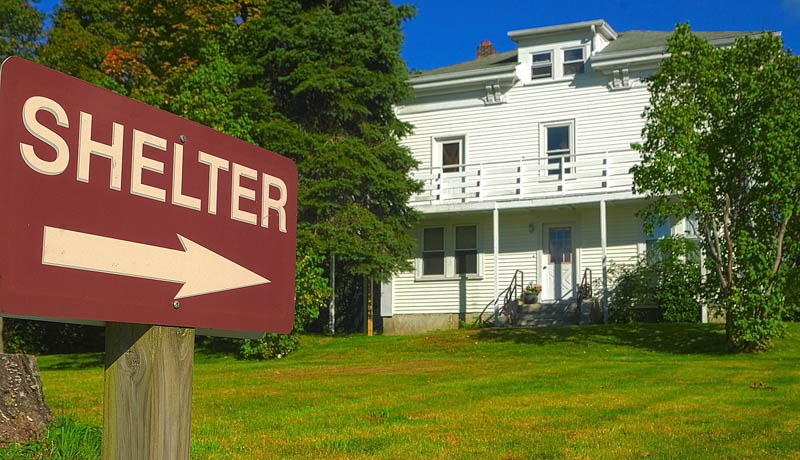AUGUSTA — If you were to ask Dean Lachance if he wants Bread of Life to open another shelter for the homeless, you might be surprised by the answer from the leader of a nonprofit organization, whose homeless shelter often has to turn people away because it is full to capacity.
“If you asked me to participate in another shelter right now, I’d say, ‘Thanks, but no thanks,’” Lachance said during a wide-ranging discussion of homelessness Friday in Augusta. “We have all we can handle with what we have now. That’s one of the things that keeps me up at night. How do we keep doing what we’re doing?”
That’s because it’s not just space, or beds, that are lacking for the homeless. Funding is even more scarce, and getting more so every year.
“We’ve lost funding for eight years straight,” Lachance said at a special meeting of the city’s Community and Social Services Committee. “We’re losing 3 (percent) to 5 percent a year, in a time in which our numbers are certainly not decreasing.”
Lachance said about 30 people a month are being turned away from the Bread of Life shelter. He noted most of them aren’t literally living on the street; they’re staying with friends or relatives or living in a camper or tent. On any given night, he said, probably up to six local people are homeless, as sleeping in a car or under a bridge.
A Jan. 30 statewide count of homeless people identified 1,175 of them in Maine. Leif Dahlin, city services director, said city staffers participating in the count found four homeless people on the streets of Augusta that night.
Betty Palmer, executive director of Mid-Maine Homeless Shelter in Waterville, said the shelter there is also full, with its 48 beds joined by 17 mats the shelter spread out on the floor for the homeless. She said the shelter gets reimbursed for only 18 of those beds.
“The rest is on donor dollars — grants and donors — and that’s incredibly hard in our economy,” she said at the gathering of about 25 people, including shelter officials, mental health workers, police and Augusta city councilors. “We’re not city-run shelters. My opinion is cities need to find a way to work together better.”
Raenae Moore, Augusta’s health officer who oversees the city’s General Assistance program, which helps low-income people who come to the city seeking aid in housing and other needs, said a lack of adequate, affordable housing in the area is another obstacle to ending or decreasing homelessness.
“The idea of the shelter is it’s temporary,” she said. “Best practices, across the country, are moving away from sheltering people for a long period of time and moving toward rapid rehousing and getting them into housing. But if you don’t have housing that is available and affordable, and landlords willing to work with you, then you’re still stuck on sheltering.
“The more you focus on the waiting room, all you’re going to do is work on the people in the waiting room, and not work on housing.”
Augusta Councilor Michael Byron said a new housing ordinance under consideration by the city and debated by councilors Thursday could help improve the quality of low-income housing in Augusta.
The ordinance would require landlords renting to tenants receiving General Assistance housing funds from the city to have their buildings inspected to make sure their units meet safety codes.
Byron said cities, Augusta included, need to do their part to help their citizens.
“A great city looks out for its citizens, even those who can’t take care of themselves,” Byron said. “The charge to this committee was to look at the social fabric of the community, to see if there are any holes in that fabric that need to be addressed.”
Victoria Watkins, administrator of Augusta Housing Authority, which oversees the system that distributes Section 8 federal housing assistance vouchers in Augusta, said the organization also has more requests for help than money to provide it.
She said her office has an extensive waiting list for housing vouchers, and each month it sends about $127,000 to landlords of voucher-holders, but it takes in only about $115,000 in federal funding.
Watkins said many of the people they serve are disabled and live on an average of $700 a month in assistance.
Earlier this month, officials of Halcyon House, a shelter that provided emergency housing to homeless youths in Skowhegan, announced the shelter was closing because of a reduction in state and federal funding.
Keith Edwards — 621-5647
kedwards@centralmaine.com
Send questions/comments to the editors.





Success. Please wait for the page to reload. If the page does not reload within 5 seconds, please refresh the page.
Enter your email and password to access comments.
Hi, to comment on stories you must . This profile is in addition to your subscription and website login.
Already have a commenting profile? .
Invalid username/password.
Please check your email to confirm and complete your registration.
Only subscribers are eligible to post comments. Please subscribe or login first for digital access. Here’s why.
Use the form below to reset your password. When you've submitted your account email, we will send an email with a reset code.